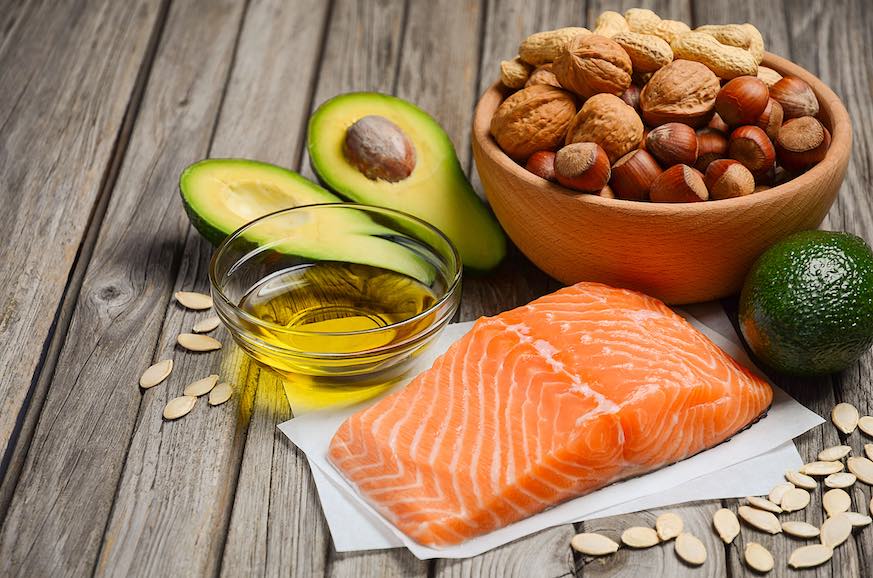When it comes to heart health, fat is no longer automatically a bad thing. In fact, it can be good for your heart — depending on what kind.
Last week, the American Heart Association (AHA) released a presidential advisory which showed that a diet of healthy fats is crucial to maintaining good cardiovascular health.
The AHA committee looked at over 100 reports from the 1950s to the present and found that swapping out saturated fats for mono and polyunsaturated fats can lower LDL, or “bad” cholesterol levels and reduce the risk of cardiac events by 30 percent — as much as cholesterol-lowering statin drugs.
One major finding: the much-touted healthy fad coconut oil actually contains 82 percent saturated fat and studies have shown it to raise cholesterol levels as much as butter, beef fat and palm oil.
With this new information, it’s time to make some changes to what we eat on a daily basis. Cardiologist Dr. Suzanne Steinbaum, director of Women’s Heart Health at Lenox Hill Hospital, talked us through a game plan for a heart healthy diet and lifestyle.
Swap out saturated fats for unsaturated fats
Saturated fat is found mostly in animal products, including red meat and dairy, and in coconut oil. It increases the LDL cholesterol in the bloodstream, which can clog your arteries and cause heart disease. The AHA advises that American consume less that 10 percent of daily calories in saturated fat.
Instead, you want to replace it with foods high in unsaturated fats, which can lower cholesterol levels and reduce the risk of heart disease, Steinbaum explains. She names choices like avocado, (more than 75 percent unsaturated fat), beans and nuts.
If you’re going to eat meat, go for lean meats, such as turkey, chicken and fish, and have red meat seldom, Steinbaum advises. Fish is high in omega-3 fatty acid, which also decreases cholesterol.
Which oils should you use in place of coconut oil?
Olive oil, vegetable oil, safflower oil, corn oil, canola oil are all heart-healthy choices, says Steinbaum. Canola oil is actually the lowest in saturated fat (7 percent).
What else should you do for your heart health?
Make sure you’re not replacing your unhealthy fats with other junk.
“Never substitute fats for sugars,” she warns. When it comes to carbs, stick to multigrains — which also work to lower LDL — as opposed to starches. Think: bran, wheat, quinoa, instead of white bread, pasta.
If you drink, keep it moderate, which means, one four-to-six ounce glass of wine a day for women, two a day for men, Steinbaum says, which can be somewhat beneficial to the heart by reducing blood pressure and preventing blood clotting. “If you don’t drink, don’t start,” she says. “Drinking too much can have toxic effects on the heart.”
Exercise-wise, Steinbaum says the American Heart Association recommends 150 minutes of “moderate intensity” exercise a week (30 minutes, five days a week). That’s defined as anything that gets your heart rate up 50 to 75 percent of your maximum heart rate (which varies based on age and individual), such as brisk walking. If you’re doing high intensity workouts that elevate the heart rate up to 85 percent — cardio, like running and swimming — the recommendation is 75 minutes a week (about three days a week at 20-30 minutes a day).

























